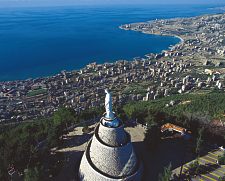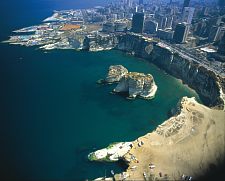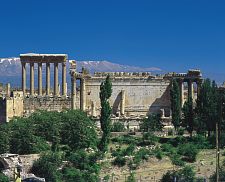|





| |
Another terrorist explosion! A sign of a Lebanese power
struggle?
ReformLebanon.com - July 12, 2005
Whilst London is recovering after its own taste of terrorism, the chaos in
Lebanon continues. Britain has already named several suspects on its list after
five days, and yet after five months of bombings and assassinations in Lebanon,
we have yet to see a single suspect named. These attacks are calculated and co-ordinated,
which suggest that something greater is brewing beneath the surface of Lebanon's
shabby political stage.
We have heard many theories pointing to foreign powers, including prime suspect
Syria. The previous two assassinated Lebanese were said to be loud anti-Syrian
voices, leading to theories of revenge attacks by Damascus. However, considering
that Syria has been under increasing US and European pressure in the past
months, the Syrians have seemed to be heeding to threats of "regime change" by
the US. Syria has pushed for greater co-operation in Iraq with a Syrian embassy
set to open in Baghdad within months, have begun to co-operate in Palestine by
supporting a "national unity government", as well as attempting to mend ties
with pro-American Arab states in the region. These trends only suggest that the
Syrians are attempting at least to dodge the American spotlight, which renders
their hand in Lebanon's terrorist carnage quite out of the ordinary. Now that
pro-Syrian figure, Elias el Murr, has been the target of an assassination
attempt, doubts regarding Syria's hand in the terrorism in Lebanon grow.
There have also been theories pointing at the US and Israel, allegedly trying to
cause instability in Lebanon. However, if instability and chaos in Lebanon were
indeed what the terrorists were seeking to create, then high-profile and
controversial figures with wide public support would have had a greater effect.
These string of attacks fail to make any sense. Various leaders and figures have
been targeted without any specific reason, in addition to smaller bombs planted
in areas at quiet times. Obviously the bombers have avoided causing heavy
civilian casualties, or extensive infrastructure damage.
One possibility is an attempt to scare the Lebanese public, but to what end
would that bring?
Therefore, we must look at another possibility that the Lebanese have failed to
explore ... the possibility of an internal power struggle in Lebanon. It has
been thirty years since the Lebanese have been given the responsibility to
govern their own country, and within those thirty years we witnessed a
destructive civil war coupled by foreign domination. The various factions are
struggling to adjust and come to terms with their newfound responsibilities, and
many of these factions are failing to present a national agenda. Instead, as
they were thirty years ago, the factions seem to be representing their own
interests. As they squabble for positions to fill the power vacuum, then perhaps
we shouldn't rule out the possibility that this power struggle has extended to
violent means. Considering that every investigation into each bomb has resulted
in absolutely nothing, one can only wonder whether these investigations ever had
the intention of producing answers.
|